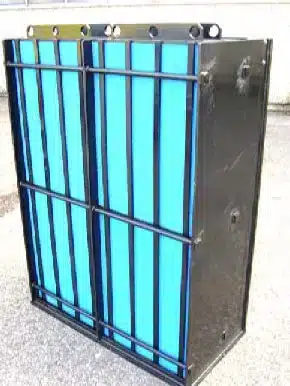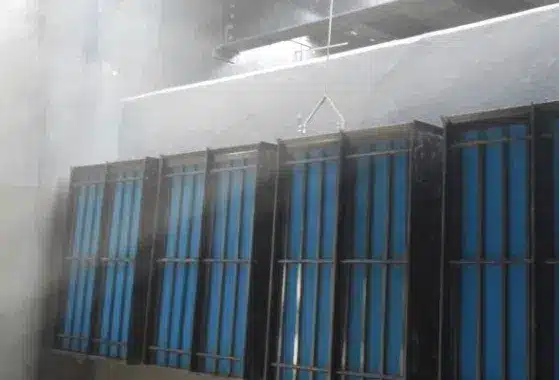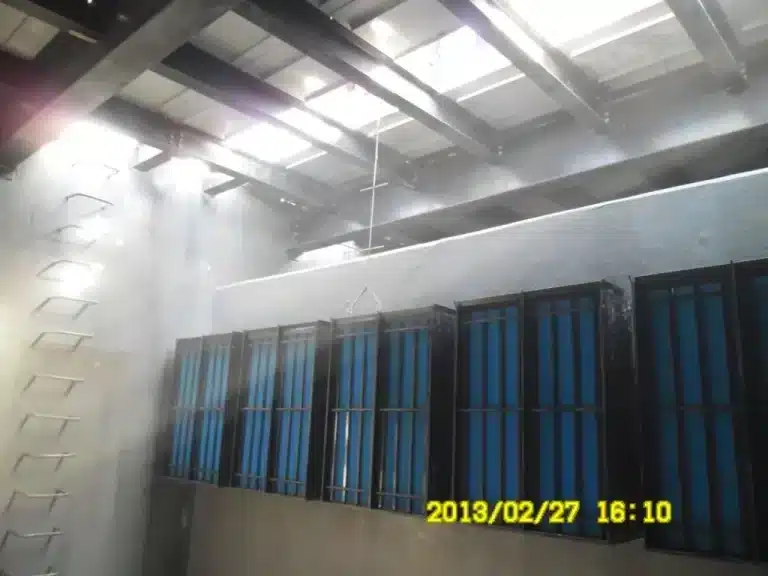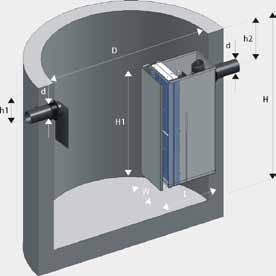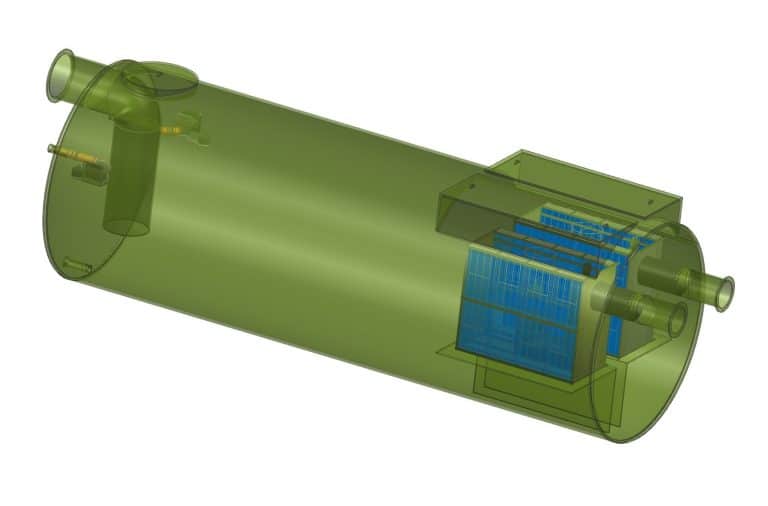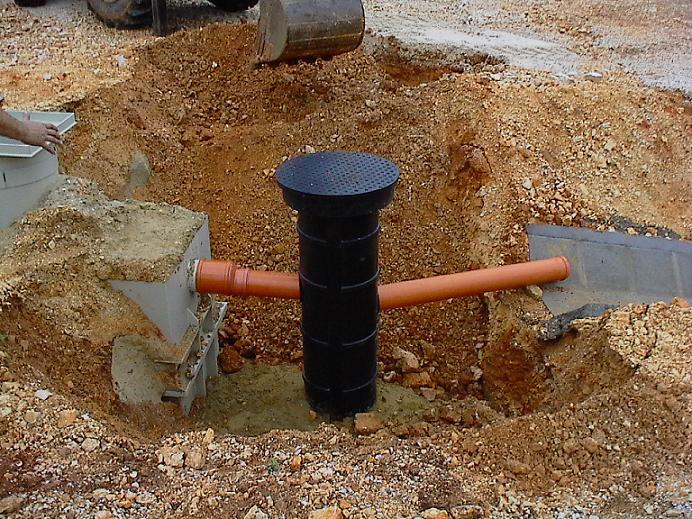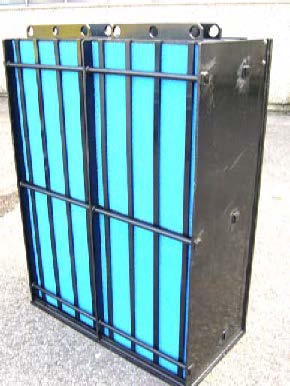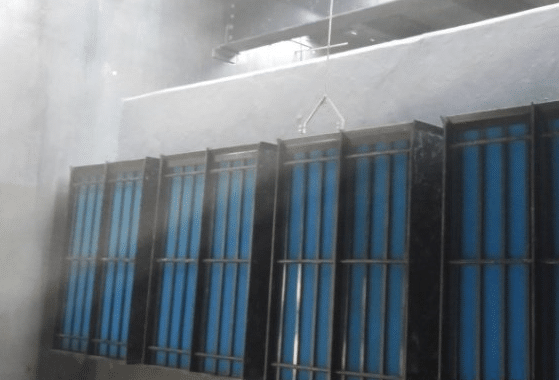Do you know about the hidden heroes protecting Georgia’s waterways from industrial pollutants? Georgia Below Ground Oil Water Separators are key to keeping our environment safe. Yet, they are often overlooked.
In Georgia, industries count on underground oil water separators to handle oily wastewater. These systems catch and separate oil from water. This way, only clean water goes back into the environment. Suppliers in Georgia provide top-notch solutions that meet strict standards.
Freytech Inc. is a top name in Georgia for Below Ground Oil Water Separators. They have developed technology that removes a lot of oil from wastewater. Their systems can get separation efficiency down to 5 PPM, which is better than the limit in North America.
Key Takeaways
- Below ground oil water separators are vital for managing industrial wastewater in Georgia.
- These systems keep waterways clean by removing oil and pollutants from wastewater.
- Advanced separators can achieve a separation efficiency of 5 PPM or better.
- Freytech Inc. offers high-performance oil water separators for Georgia industries.
- Proper installation and upkeep of these systems ensure they meet regulations.
Introduction to Below Ground Oil Water Separators in Georgia
Below Ground Oil Water Separators are key in Georgia’s industrial world. They manage wastewater and keep the environment safe from oil spills. It’s important for businesses in the state to know how they work and why they matter.
What are Below Ground Oil Water Separators?
These systems are put underground. They use gravity to separate oil from water in industrial runoff. This way, oily wastewater is caught before it can harm the environment. They are a must-have for many Georgia businesses.
Importance in Industrial Areas
In Georgia’s industrial areas, these separators are crucial. They help factories, auto shops, and other businesses handle their wastewater right. By taking out oil and solids from the water, they stop pollution and protect nature.
Meeting Georgia’s Environmental Rules
Georgia has tough rules for oil water separators. These rules protect the state’s water. By using these systems, businesses show they care about the environment and avoid big fines.
How Georgia Below Ground Oil Water Separators Work
Below ground oil water separators in Georgia use a smart process to clean wastewater. They use natural forces and smart design to separate oil from water well.
Gravity Differential Settling Process
The main way these separators work is through gravity differential settling. This uses the fact that oil is lighter than water. When wastewater goes into the separator, oil goes up and heavier stuff goes down.
The design looks at things like oil size and water temperature to make sure separation is best.
Key Components
A typical separator has three main parts: the inlet, separator channel, and outlet. The inlet slows down the water coming in. The separator channel has parallel plates that help separate oil. At the outlet, clean water goes out and oil stays back.
This setup is key for keeping oil water separators in Georgia working right.
Removal of Free Oils and Solids
The separator can take out oil droplets as small as 40 microns. It can make oil in water less than 10 parts per million. Solids settle at the bottom for easy removal.
Regular cleaning keeps the system running well. For Georgia businesses using these systems, keeping them maintained is important.
Types and Designs of Below Ground Oil Water Separators
Below ground oil water separators have different types and designs for various needs. The main categories are API separators and Corrugated Plate Interceptors (CPIs). API separators are traditional, while CPIs use advanced technology for better oil separation.
The design of underground oil water separators is key to their success. For below-ground use, they are made from steel or concrete. These materials are strong and resist corrosion, making them last a long time in tough conditions.
These separators come in many sizes to fit different flow rates and capacities. Small units can handle 20 gallons per minute (GPM), while big ones can process up to 2000 GPM. They can hold from 400 to 20,000 gallons, so facilities can pick the right size for their needs.
Custom options make below ground oil water separators more useful. They include trash screens to catch big debris, slotted pipe skimmers for removing oil, and surface conveyors for collecting waste. Some systems also have bottom drag or screw conveyors to manage solid particles well.
Benefits of Installing Below Ground Oil Water Separators in Georgia
Georgia Below Ground Oil Water Separators bring big benefits for businesses and the planet. They are key in handling wastewater and keeping natural resources safe across the state.
Environmental Protection and Regulatory Compliance
These systems help Georgia businesses follow strict environmental laws. They take out oil and solids from wastewater, stopping pollution of local water. This way, companies can dodge big fines and stay in good shape with the law.
Cost-Effective Wastewater Management
Installing these separators in Georgia saves money over time. They need little upkeep and work without chemicals or filters. This cuts down on costs and makes them a smart choice for managing wastewater. Companies can use their money better and make sure their wastewater is properly treated.
Improved Operational Efficiency for Industries
Georgia Below Ground Oil Water Separators make businesses run better. They have easy-to-clean covers and don’t have moving parts, making upkeep simple. Plus, they use no power, which saves energy. By making wastewater treatment easier, companies can focus more on their main work and work better overall.
Sizing and Installation Considerations for Georgia Facilities
Choosing the right size for an oil water separator in Georgia is key. Factors like flow rate, oil globule size, and wastewater type matter a lot. These separators range from 3’9″ to 10’0″ in diameter and 6’0″ to 34’0″ long. They can handle flow rates from 20 to 2000 GPM, fitting various facility needs.
Installing an underground oil water separator needs careful planning. It’s important to bury it shallow for easy access during maintenance. Good venting is crucial to avoid pressure issues and keep it running smoothly. Sometimes, hold-down straps are needed to keep the separator in place in areas with high water levels.
For the best results, always talk to professional engineers. They can figure out the right size and design for your specific situation. This expert advice helps meet Georgia’s environmental rules and boosts your facility’s efficiency.
Maintenance and Best Practices for Below Ground Oil Water Separators
Keeping Georgia Below Ground Oil Water Separators in good shape is crucial. Regular care makes sure they work well and follow environmental laws. Let’s look at key steps for maintaining these important devices.
These separators are crucial in storm water systems. They process runoff to meet the US EPA’s Clean Water Act standards. With effective oily water treatment, facilities protect the environment and dodge big fines.
Regular Inspection and Cleaning
Checking these separators often is a must. Look for sludge and oil layers. Clean them when needed to keep the system running smoothly. This avoids expensive repairs and keeps the system efficient.
Monitoring Oil Accumulation
Watch the oil levels in your separator closely. Remove oil when it gets too deep. This stops overflow and keeps the separator working right. Regular oil removal is key for these separators in Georgia.
Ensuring Long-Term Performance
Follow the maker’s advice for the best results. Service the coalescing media outside to avoid danger. Keep detailed records of all maintenance work. This helps track performance and shows you’re following the rules. Regular checkups catch problems early, saving time and money later.
Conclusion
Georgia Below Ground Oil Water Separators are key in handling wastewater for industries and maintenance. They remove free oils and solids from water, helping companies follow strict environmental rules. Suppliers like Freytech Inc. in Georgia offer top-notch separators that beat industry standards in separation.
These separators do more than just meet regulations. They are a cost-effective way to manage wastewater and make operations more efficient. It’s important to get the right size and install them correctly to get the most out of them. Regular checks and cleanings keep them working well and following the rules.
For companies in Georgia looking for expert advice on below ground oil water separators, help is available. Experts can guide you from choosing the right size to installing and maintaining it. By choosing quality separators and keeping them in good shape, companies can help the environment and save money.

